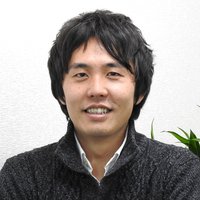With the ever-rising demands from both the consumer and
industrial sectors, a diversity of new chemicals and materials are produced
every day, such as plastics, insecticides, pharmaceuticals, and petroleum
products. Many of them are hazardous and will be invariably released into the environment.
Some molecules, however, are too complex or toxic to be biodegradable and must
be processed with physical or chemical means before being discharged into
natural water bodies of rivers, lakes, and oceans. Traditional remediation approaches
rely mainly on transition or noble metals as catalysts to remove these organic
pollutants from water. Regardless of the mediocre efficiency and high
operational expenses, these metal catalysts are unstable and may cause secondary
contamination.
Dr Xiaoguang Duan, a senior lecturer at the University of
Adelaide in Australia, has developed a green remediation system to address the
long-standing challenges in wastewater treatment. His research focuses on
developing low-cost and intelligent functional materials as well as innovates purification
technologies with non-metal catalysis. He discovered for the first time a new nonradical
reaction process for wastewater treatment using metal-free nanocarbons as the
catalysts. The developed green oxidation system is highly efficient and stable
during long-term operation. Compared to traditional metal catalysts, non-metal
nanomaterials demonstrated superior
remediation efficiency and high selectivity toward trace-level micropollutants.
As a result, the novel technology addressed the inefficiency of the traditional
methods for treating complex aquatic systems. His team has successfully used the
green purification technology to clean medicines, antibiotics, microplastics, germs,
and viruses from wastewater. Remarkably, the technique shed fresh light on the
treatment of clinical and hospital wastewater as well as hygiene issues in the
current pandemic situation.
The
significant findings on metal-free catalysis for advanced oxidation are
breakthroughs in water remediation technologies from both engineering and
fundamentals. The research of Dr Duan’s research inspires the development of
next-generation purification systems employing green and safe nanotechnologies.
Hundreds of related studies have been published by academics from all around
the world in just a few years since the first milestone achieved in 2015. The
outcomes have significantly empowered the advances in manufacture, water
safety, and environmental sustainability.




